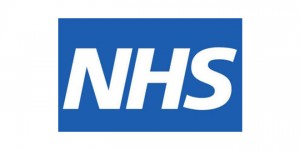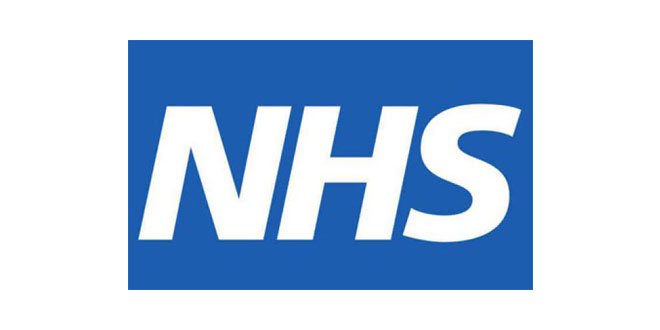A Report On The Future Of The National Health Service – A Rapid Increase In The Consumption Of Public Money To Provide Worsening Service?
 A report ‘The Future of the NHS’ will be published next week as part of the programme of GGI’s annual conference. With commentary from eminent colleagues including former secretaries of state for health, the publication critically examines and provides some context to the direction in which the NHS is headed – consuming more and more public money to provide an increasingly worse service. Sir William Wells, presented his concerns at a seminar hosted by GGI in Westminster, for which he brought together, and invited, an eminent group including:
A report ‘The Future of the NHS’ will be published next week as part of the programme of GGI’s annual conference. With commentary from eminent colleagues including former secretaries of state for health, the publication critically examines and provides some context to the direction in which the NHS is headed – consuming more and more public money to provide an increasingly worse service. Sir William Wells, presented his concerns at a seminar hosted by GGI in Westminster, for which he brought together, and invited, an eminent group including:
- Sir William Wells, former Chair of the NHS Appointments’ Commission
- The Rt Hon Alan Milburn, former Secretary of State for Health
- The Rt Hon Baroness Virginia Bottomley, former Secretary of State for Health
- Lord Philip Hunt, Labour peer and treasurer of the All-Party Parliamentary Health Group
- Professor Charles Swainson, EHealth Clinical Lead – Scottish Government
- Maureen Dalziel, Chair of Barking, Havering and Redbridge University Hospitals NHS Trust
- Dr Chai Patel, Chairman HC One Ltd
- Professor Derek Bell, President of the Royal College of Physicians, Edinburgh
- Andrew Corbett-Nolan, Chief Executive of the Good Governance Institute.
The event, chaired by Professor Michael Deighan, to critically examine the future challenges facing the NHS. The NHS is renowned for demanding high standards and was recognised by the US-based Commonwealth Fund as the most equitable and efficient health care system in the world. However, there is no denying that times are tough.
Dr Chai Patel, Chairman of HC One, specialising in Dementia, Nursing, Residential and Specialist care with homes throughout the UK outlined that “A chronic underinvestment in social care combined with demographic changes and poor manpower planning will result in a catastrophic failure of the NHS”.
This concern was supported by Rt Hon Alan Milburn, former Secretary of State for Health who stated “The principle financial incentive across the whole healthcare system should be focused on how we keep patients healthy and out of hospital” –
Professor Derek Bell, President of the Royal College of Physicians in Scotland defined concern beyond the mere financial stating “The NHS is data rich but information poor. This applies across the system, particularly in relation to the presentation of information to NHS boards. There is a need for ‘live’ data presented in the correct way to facilitate informed and prioritised decisions focused on both clinical quality and financial challenges. This is also to inform the day to day operational management and strategic planning”
The Future of the National Health Service report presents the core arguments arising from the debate and explores recommendations and critical next steps required to safeguard the future sustainability of the health and care system.
The report analyses in some detail at the NHS in the midst of the most serious financial crisis since its inception and together with the wider care system, is experiencing the most austere era in its 68-year history. Both health and social care are facing a decade long funding squeeze which, it has been reported, will see spending as a share of GDP decrease leaving Britain behind many other advanced nations on this measure of spending. With an ageing population, a society in which the prevalence of long term medical conditions is ever increasing, the rising cost of care, a chronic underinvestment in social care and a reported cumulative 2015/16 provider deficit of £2.45 billion, the health system is teetering on the edge of a full blown crisis.
Sir William stresses that the absence of forward thinking about the future challenges facing health and social care in England is ‘bordering on complacency’ and will be ‘bitterly regretted in 20 to 30 years time’.
The Future of the National Health Service will examine the radical transformational action that can and must be taken to protect against the collapse of the health and care system and and look to provide solutions that will continue to ensure that one of Britain’s greatest national assets remains sustainable into the future.
The report also examines how many of the pressures engulfing it are amplified by chronic underinvestment in social care that has driven the need for the NHS to deliver unprecedented productivity improvements. The report identifies the fundamental problem – too many people attend hospital, are admitted to hospital and stay in hospital for too long – as a predominant issue that has its foundations in the clear lack of incentives within the system (i.e. rewarding providers for what they do as opposed to rewarding outcomes/what they achieve). This paper looks to alter the way in which the NHS rewards performance.
Finally, the report makes a strong case against the NHS being regularly impacted upon and utilised as a political, vote-shifting tool in every major election. To ensure the radical changes are upheld and allowed the necessary time to be implemented, there needs to be an emphasis placed upon central direction and strong leadership so that decision making is made by cross party consensus over two parliaments.
The report will be formally launched at The Festival of Governance on 27th September at the Royal College of GPs and will be made publicly available from www.good-governance.org.uk





